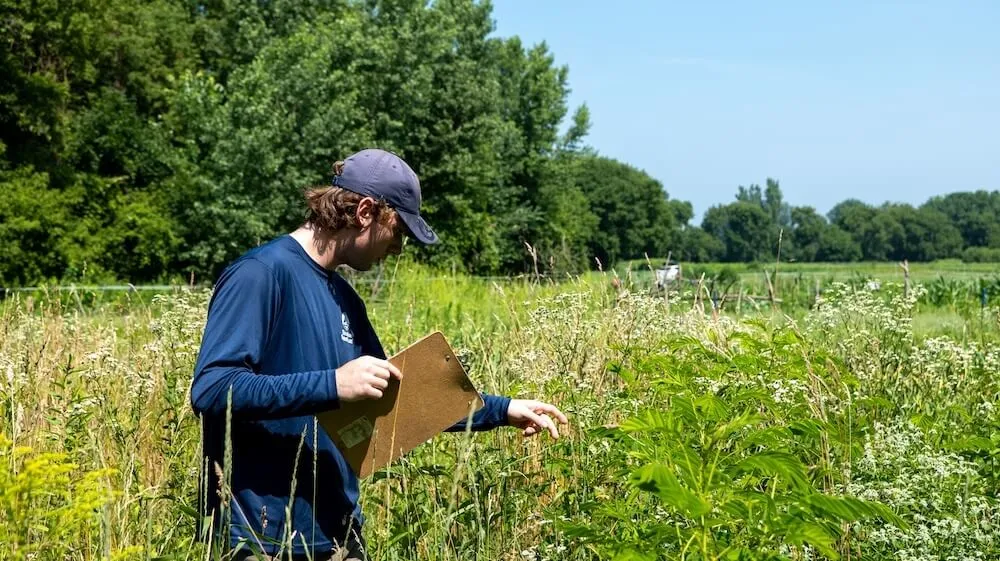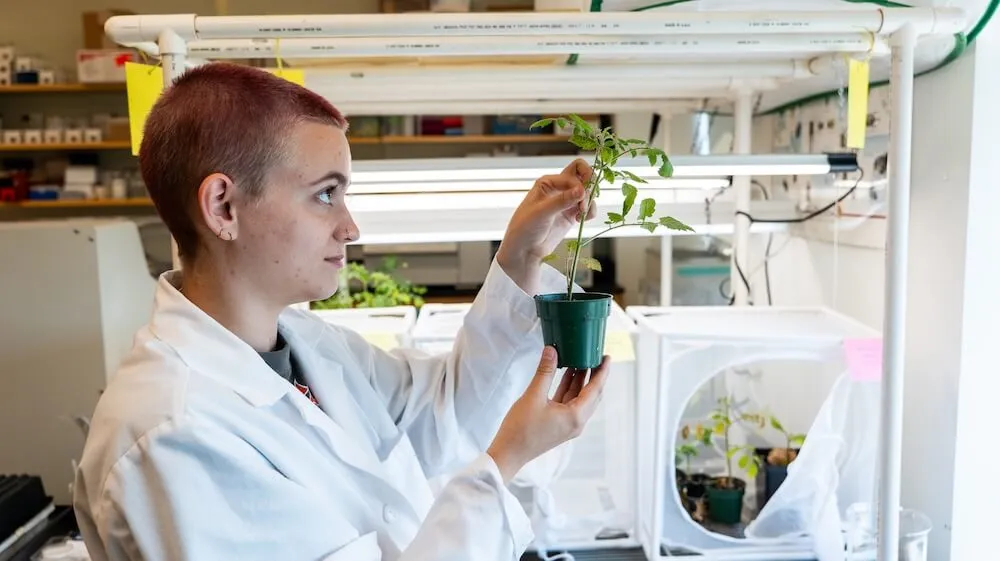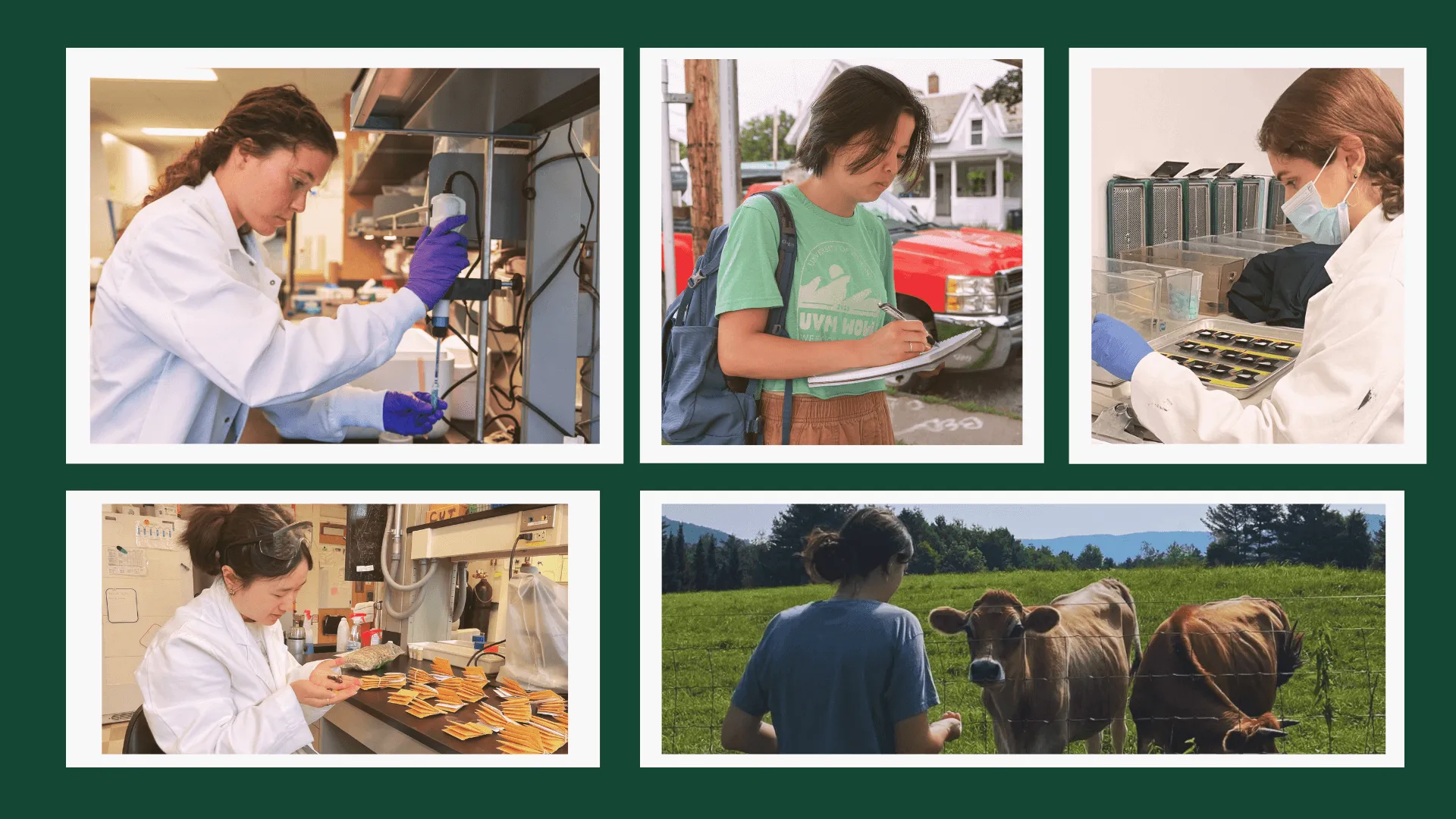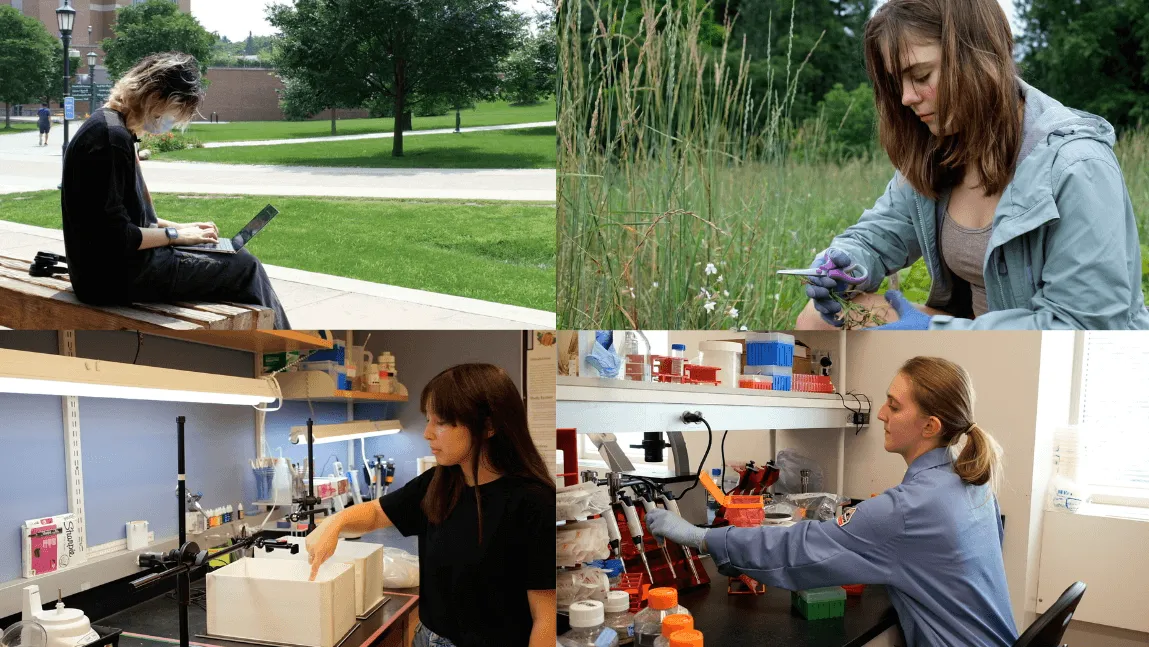Roughly one-third of the world's food supply depends on pollinators for production. Agricultural producers often plant flower-filled strips along their fields to encourage these insects to visit and pollinate their crops. This summer, UVM Environmental Sciences major Ben Mowery worked in Dr. Taylor Ricketts' lab studying the effectiveness of these pollinator strips versus naturally occurring hedgerows.
Ben is a Food Systems Research Institute Undergraduate Research Fellow and a senior in the Rubenstein School of Environment and Natural Resources. He has a strong interest in agroecology and the interactions between agriculture and the environment which made this project particularly fitting.
“A lot of the crops that we grow here in Vermont have really important relationships with native pollinators,” said Ben. “Figuring out how we can support those native pollinators and how those pollinators then interact with the crops that we're growing is really important to understanding ways that our crop system and our farming can be more sustainable and can be more connected to the ecosystem around it."
This study explores not only the number of bees drawn to pollinator strips, but also the variety of species that they attract. The findings could eventually help agricultural producers choose strategies that support pollination and enhance crop yields.
About the FSRI:
The Food Systems Research Institute (FSRI) at the University of Vermont (UVM) funds people and planet-centered collaborative research that connects disciplines and communities to answer complex food systems questions.
The FSRI funds undergraduates to do summer research with UVM researchers on critical food systems topics.



